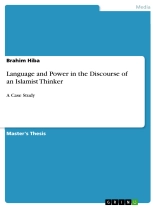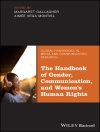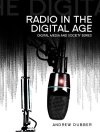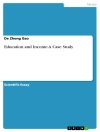Master’s Thesis from the year 2012 in the subject Communications – Miscellaneous, grade: with honours, University Hassan II. Casablanca (the Faculty of Letters and Human Sciences – Ain Chock), course: Language and Society, language: English, abstract: Language is not a mere means of communication; it is a form of “social practice” that reflects the ideology and the socio-political ambitions of the person or the social group using that language (Fairclough, 1989). This study aims at exploring the relationships between language and ideology and how such relationships are represented in the talk of an Islamist Egyptian thinker; the analysis of the latter’s talk was done according to Fairclough’s model of Critical Discourse Analysis (1989). Critical Discourse Analysis is defined by van Dijk as a linguistic discipline which studies the relationships between discourse and social power. More specifically, Critical Discourse Analysis describes and explains “how power abuse is enacted, reproduced or legitimized by the text and talk of dominant groups or institutions” (1996: 84).
CDA (Critical Discourse Analysis) aims at analyzing hegemonic and manipulative discourses in society to uncover the mechanisms that have made those discourses hegemonic and manipulative. The ultimate purpose of any CDA study is to unravel the underlying hidden agenda which is left implicit in the discourse and to criticize it.
The data base of this study is 26 excerpts taken from the talk of an Egyptian Islamist thinker who has been invited to a religious TV talk show to give his opinions about secularism in the Arab World. The excerpts have been analyzed within the framework of CDA. More specifically, the excerpts have been analyzed at two major levels: the rhetorical level and the argumentative level. The analysis of the former has been done in terms of the rhetorical elements that construct the majority of discourses such as transitivity, modality, agency, nominalization, passivization, lexicalization, intertextuality, and figures of speech. On the other hand, the analysis of the argumentative aspect has been done in terms of the types of premises and logical arguments that are used in the Islamist thinker’s discourse.
Brahim Hiba
Language and Power in the Discourse of an Islamist Thinker [PDF ebook]
A Case Study
Language and Power in the Discourse of an Islamist Thinker [PDF ebook]
A Case Study
Compre este e-book e ganhe mais 1 GRÁTIS!
Língua Inglês ● Formato PDF ● ISBN 9783656445678 ● Tamanho do arquivo 1.0 MB ● Editora GRIN Verlag ● Cidade München ● País DE ● Publicado 2013 ● Edição 1 ● Carregável 24 meses ● Moeda EUR ● ID 3971172 ● Proteção contra cópia sem












